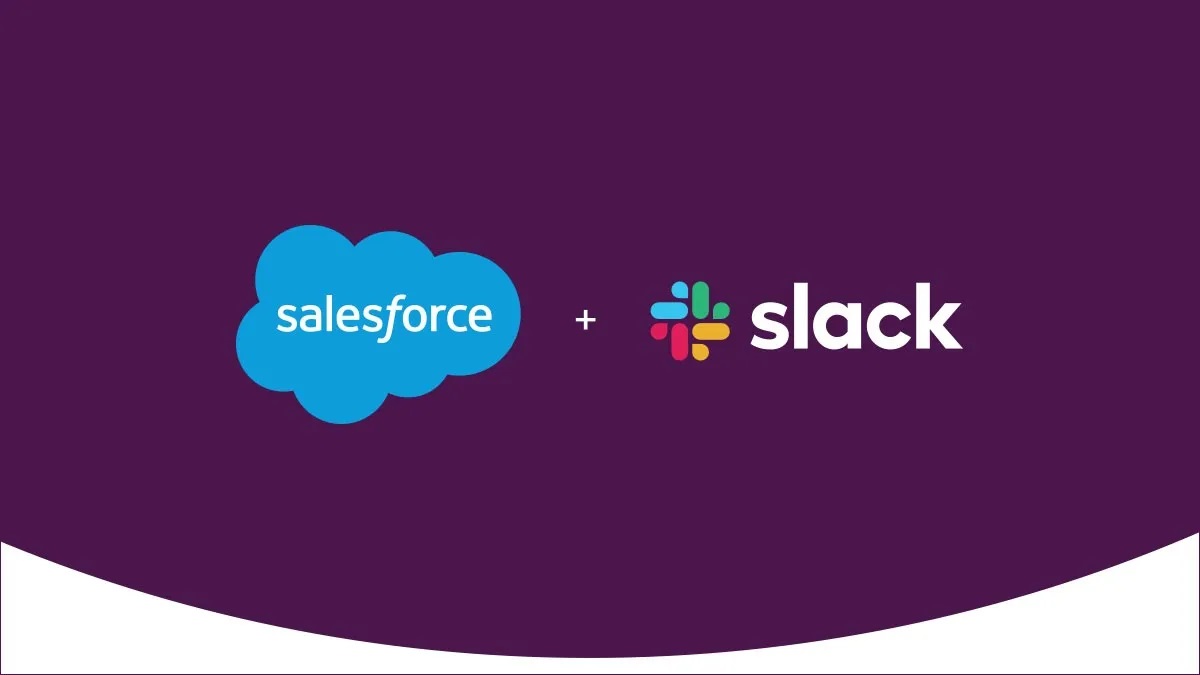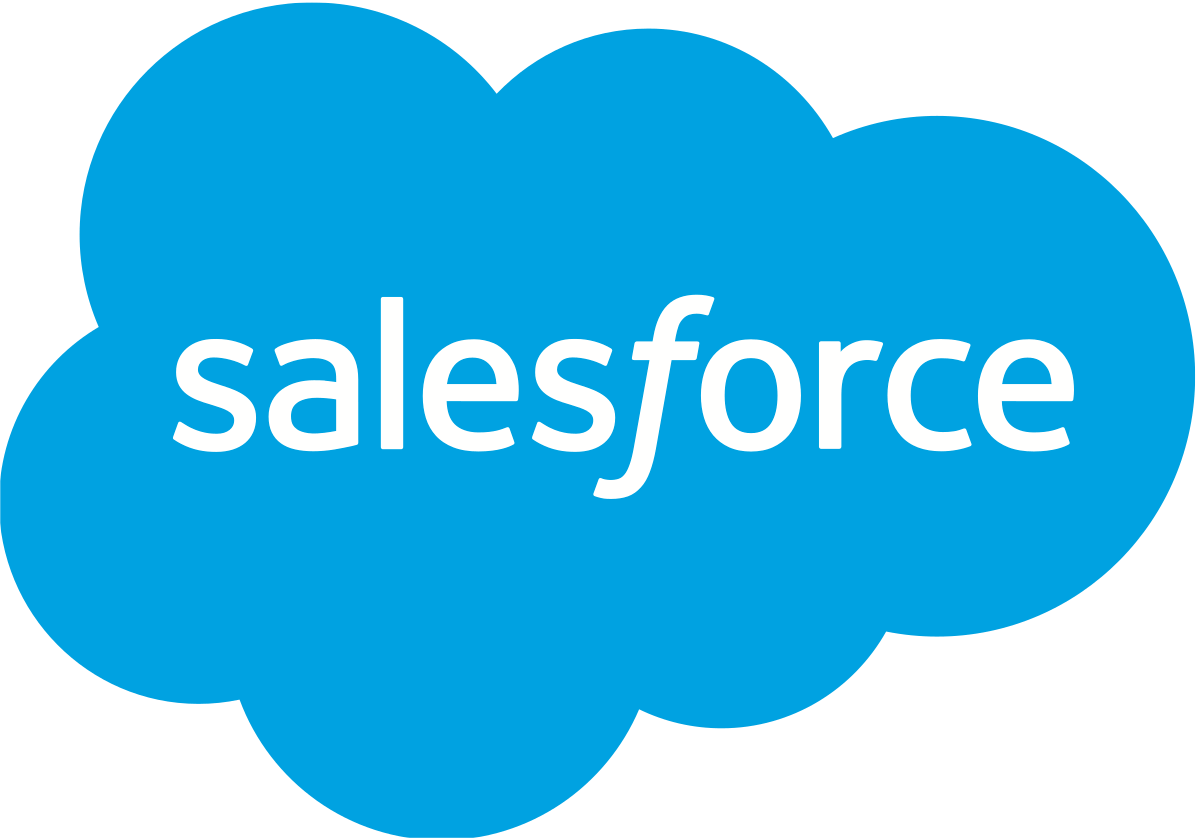Technology
Salesforce Rolls Out Slack AI

Salesforce has launched Slack AI, a trusted and intuitive generative AI experience available natively in Slack, where work happens.
Customers can easily tap into the collective knowledge shared in Slack through guided experiences for AI-powered search, channel recaps, thread summaries, and soon, a digests feature. These capabilities will enable customers to find answers, distil knowledge, and spark ideas faster.
“For the past decade, Slack has revolutionised the way we work, bringing people, apps, and systems together in one place,” the chief executive of Slack, Denise Dresser, said.
Dresser added that, “With Slack AI, we’re excited to take this transformation to the next level. These new AI capabilities empower our customers to access the collective knowledge within Slack so they can work smarter, move faster, and spend their time on things that spark real innovation and growth.
“In the era of generative AI, Slack is the trusted, conversational platform that connects every part of a business to supercharge team productivity.”
Why it matters
Nearly half of digital workers struggle to find the information they need to efficiently do their jobs, according to Gartner. This, paired with an increasing number of tools and ways to exchange ideas, adds to workers’ cognitive load and makes it difficult to catch up quickly and feel on top of the workday. AI holds enormous potential to make internal knowledge more contextual, relevant, and easier to find and prioritise.
Innovation in action
Starting from Thursday, Slack AI’s search and summarisation capabilities can help customers easily find and consume large volumes of information quickly. These features are trustworthy, easy to use, and require no training.
Users initiate them through guided, contextual interactions, ensuring they don’t have to learn brand-new skills to enjoy the benefits. Each output is secure, cited, and personalised to the user.
With Slack AI, customers can access:
AI-powered search that delivers personalised, intelligent responses to any question: Users can ask a question conversationally and get a concise answer based on relevant Slack messages. Users can find what they need faster, whether they want to learn about a new marketing campaign, get up to speed on company policies, glean insights about past decisions from historical context, or define unfamiliar acronyms.
Channel recaps that generate key highlights from accessible channels: Users can catch up on unread messages, summarise the last seven days, or set a custom date range to summarise. Users can quickly catch up after time away from work, get up to speed on a new project, or jump in quickly to help resolve time-sensitive issues.
Thread summaries that catch users up on long conversations: Users can get the gist of a long conversation in one click, and clear sources are included in each summary, allowing users to dive deeper into a highlight. Users can instantly summarise key decisions and next steps from a thread with a lot of back and forth, get up to speed on a customer support ticket or catch up on a team stand-up to get a bird’s eye view of priorities.
Sales spotlight
Sales teams are under pressure to streamline their operations and maximize team effectiveness. With Slack AI, sales reps can;
Easily identify and bring in the right subject matter expert when a customer has a specific question or concern during a deal cycle.
Summarise an account channel and get the context they need to prepare for a customer meeting more effectively.
Generate key takeaways from a long discussion about deal progress to help keep the team on track.
Engineering spotlight
The incident management process can be time-consuming and complex. With Slack AI, engineering teams can:
Find answers in past incident channels to uncover potential solutions and apply learnings.
Get the right information they need so they can quickly get situated and jump in to help find a resolution.
Recap an incident channel and use it as a starting point to draft a root-cause analysis faster.
Slack’s trusted and secure AI experience
Trust is the number one value at Salesforce, and Slack is committed to building AI products safely, responsibly, and ethically.
Slack AI runs on Slack’s infrastructure and upholds the same security practices and compliance standards that customers expect.
Slack AI’s large language models (LLMs) are hosted directly within Slack, ensuring customer data remains in-house and exclusively for that organisation’s use.
Customer data remains siloed and will not be used to serve other clients, directly or indirectly.
Slack AI does not use customer data for LLM training purposes.
The future of native generative AI in Slack
More features that help users summarise and prioritise information are on the horizon. Soon, Slack AI will create digests summarising key highlights from channels that users want to stay informed on but may not require immediate attention, enabling them to stay up to speed on what they could otherwise miss while focusing on their top priorities.
Additionally, Slack is building a native AI integration with Einstein Copilot, a new conversational AI assistant for Salesforce CRM, that will provide answers to questions directly in Slack that are grounded in trusted customer data.
These new search and summarisation features are just the beginning of how Slack will enable people to work smarter and faster. In the future, Slack will be the command centre for work and the conversational interface for generative AI.
Slack’s AI-ready platform
In addition to these native AI capabilities, partners are bringing additional AI functionality into their Slack apps. Available today, upgraded AI-powered apps
from Slack’s partner ecosystem allow users to ask PagerDuty Copilot for help resolving incidents, automatically summarise Notion documents in link previews, and more. And coming soon, a brand new AI integration with Perplexity will allow users to subscribe to AI-powered insights and pipe them into Slack.
What they’re saying
“Slack AI is not only a huge productivity boost — it’s easy to use, right where we already work in Slack. Our team loves how quickly they can find answers, which translates to faster decision-making and a greater focus on work that drives an impact.” – Kate Earle Jensen, Head of Sales and Partnerships, Anthropic
“During the pilot program, we experienced firsthand the major productivity gains that Slack AI could drive for our business. Slack AI has helped speed up our employees’ work exponentially.” – Zach Hyman, Co-CEO, SpotOn
“At Perplexity, we’re building the next-generation answer engine, applying the most advanced LLMs to make knowledge instant and accessible. Now with Perplexity Push, we’re delivering an enterprise integration that brings AI-powered insights directly into Slack. Teams can easily stay in the know on topics they care about where conversations and collaboration already happen.” – Aravind Srinivas, CEO, Perplexity
“Slack AI helps users unlock the full potential of company knowledge in Slack, all while supporting existing security, privacy, and compliance controls.” — Irwin Lazar, President and Principal Analyst, Metrigy
Technology
Telecom Operators to Issue 14-Day Notice Before SIM Disconnection

By Adedapo Adesanya
Telecommunications operators in Nigeria will now be required to give subscribers a minimum of 14 days’ notice before deactivating their SIM cards over inactivity or post-paid churn, following a fresh proposal by the Nigerian Communications Commission (NCC).
The proposal is contained in a consultation paper, signed by the Executive Vice Chairman and Chief Executive Officer of the NCC, Mr Aminu Maida, and titled Stakeholders Consultation Process for the Telecoms Identity Risks Management Platform, dated February 26, 2026, and published on the Commission’s website.
Under the proposed amendments to the Quality-of-Service (QoS) Business Rules, the Commission said operators must notify affected subscribers ahead of any planned churn.
“Prior to churning of a post-paid line, the Operator shall send a notification to the affected subscriber through an alternative line or an email on the pending churning of his line,” the document stated.
It added that “this notification shall be sent at least 14 days before the final date for the churn of the number.”
A similar provision was proposed for prepaid subscribers. According to the Commission, operators must equally notify prepaid customers via an alternative line or email at least 14 days before the final churn date.
Currently, under Section 2.3.1 of the QoS Business Rules, a subscriber’s line may be deactivated if it has not been used for six months for a revenue-generating event. If the inactivity persists for another six months, the subscriber risks losing the number entirely, except in cases of proven network-related faults.
The new proposal is part of a broader regulatory review tied to the rollout of the Telecoms Identity Risk Management System (TIRMS), a cross-sector platform designed to curb fraud linked to recycled, swapped and barred mobile numbers.
The NCC explained in the background section of the paper that TIRMS is a secure, regulatory-backed platform that helps prevent fraud stemming from churned, swapped, barred Mobile Station International Subscriber Directory Numbers in Nigeria.
It said this platform will provide a uniform approach for all sectors in relation to the integrity and utilisation of registered MSISDNs on the Nigerian Communications network.
In addition to the 14-day notice requirement, the Commission also proposed that operators must submit details of all churned numbers to TIRMS within seven days of completing the churn process, strengthening oversight and accountability in the system.
The consultation process, which the Commission said is in line with Section 58 of the Nigerian Communications Act 2003, will remain open for 21 days from the date of publication. Stakeholders are expected to submit their comments on or before March 20, 2026.
Technology
Silverbird Honours Interswitch’s Elegbe for Nigeria’s Digital Payments Revolution

By Modupe Gbadeyanka
The founder of Interswitch, Mr Mitchell Elegbe, has been honoured for pioneering Nigeria’s digital payments revolution.
At a ceremony in Lagos on Sunday, March 1, 2026, he was bestowed with the 2025 Silverbird Special Achievement Award for shaping Africa’s financial ecosystem.
The Silverbird Special Achievement Award recognises individuals whose innovation, vision, and sustained impact have left an indelible mark on society.
Mr Elegbe described the award as both humbling and symbolic of a broader journey, saying, “This honour represents far more than a personal milestone. It reflects the courage of a team that believed, long before it was fashionable, that Nigeria and Africa could build world-class financial infrastructure.”
“When we started Interswitch, we were driven by a simple but powerful idea that technology could democratise access, unlock opportunity, and enable commerce at scale.
“This recognition by Silverbird strengthens our resolve to continue building systems that empower businesses, support governments, and expand inclusion across the continent,” he said when he received the accolade at the Silverbird Man of the Year Awards ceremony attended by several other dignitaries, whose leadership and contributions continue to shape national development and industry transformation.
In 2002, Mr Elegbe established Interswitch after he was inspired by a bold conviction that technology could fundamentally redefine how value moves within and across economies.
Under his leadership, the company has evolved into one of Africa’s foremost integrated payments and digital commerce companies, powering financial transactions for governments, banks, businesses, and millions of consumers.
Today, much of Nigeria’s electronic payments ecosystem traces its foundational architecture to the systems and rails established under his leadership.
“Mitchell’s journey is inseparable from Nigeria’s digital payments evolution. His foresight and resilience helped establish foundational infrastructure at a time when the ecosystem was still nascent.
“This recognition affirms not only his personal legacy, but the broader impact of Interswitch in enabling commerce and strengthening financial systems across Africa,” the Executive Vice President and Group Marketing and Communications for Interswitch, Ms Cherry Eromosele, commented.
Technology
SERAP Seeks FCCPC Probe into Big Tech’s Impact on Nigeria’s Digital Economy

By Adedapo Adesanya
The Socio-Economic Rights and Accountability Project (SERAP) has called on the Federal Competition and Consumer Protection Commission (FCCPC) to urgently investigate major global technology companies over alleged abuses affecting Nigeria’s digital economy, media freedom, privacy rights and democratic integrity.
In a complaint addressed to the chief executive of FCCPC, Mr Tunji Bello, the group accused Google, Meta (Facebook), Apple, Microsoft (Bing), X, TikTok, Amazon and YouTube of deploying opaque algorithms and leveraging market dominance in ways that allegedly undermine Nigerian media organisations, businesses, and citizens’ rights.
The complaint, signed by SERAP Deputy Director, Mr Kolawole Oluwadare, urged the commission to take measures necessary to urgently prevent further unfair market practices, algorithmic influence, consumer harm and abuses of media freedom, freedom of expression, privacy, and access to information.”
SERAP also asked the FCCPC to convene a public hearing to investigate allegations of algorithmic discrimination, data exploitation, revenue diversion, and anti-competitive conduct involving the tech giants.
According to the organisation, dominant digital platforms now act as private gatekeepers of Nigeria’s information and business ecosystem, wielding enormous influence over public discourse and market competition without sufficient transparency or regulatory oversight.
“Millions of Nigerians rely on these platforms for news, information and business opportunities,” SERAP stated, warning that opaque algorithms and offshore revenue extraction models pose both economic and human rights concerns.
The group argued that the alleged practices threaten media plurality, consumer protection, privacy rights, and the integrity of Nigeria’s forthcoming elections.
SERAP pointed to actions taken by the South African Competition Commission, which investigated Google over alleged bias against local media content, adding that the South African probe reportedly resulted in measures including algorithmic transparency requirements, compliance monitoring and financial remedies.
SERAP urged the FCCPC to take similar steps to safeguard Nigerian media and businesses.
The organisation maintained that if established, the allegations could amount to violations of Sections 17 and 18 of the Federal Competition and Consumer Protection Act (FCCPA), which prohibit abuse of market dominance and anti-competitive conduct.
SERAP stressed that the FCCPC has statutory authority to investigate and sanction conduct that substantially prevents, restricts or distorts competition in Nigeria.
It also warned that failure by the Commission to act promptly could prompt the organisation to pursue legal action to compel regulatory intervention.
Citing concerns reportedly raised by the Nigerian Press Organisation (NPO), SERAP said big tech companies have fundamentally altered Nigeria’s information environment, creating what it described as a structural imbalance of power that threatens the sustainability of professional journalism.
Among the allegations listed are: Algorithms controlled outside Nigeria determining content visibility, monetisation of Nigerian news content without proportionate reinvestment, offshore extraction of advertising revenues, limited discoverability of Nigerian websites and platforms, and lack of transparency in ranking and recommendation systems.
SERAP argued that declining revenues in the Nigerian media industry have led to shrinking newsrooms, closure of bureaus, and the emergence of news deserts, weakening journalism’s constitutional role in democratic accountability.
The organisation further warned that algorithmic opacity and data-driven micro-targeting could influence voter exposure to information ahead of Nigeria’s forthcoming elections, raising concerns about electoral fairness and transparency.
-

 Feature/OPED6 years ago
Feature/OPED6 years agoDavos was Different this year
-
Travel/Tourism10 years ago
Lagos Seals Western Lodge Hotel In Ikorodu
-

 Showbiz3 years ago
Showbiz3 years agoEstranged Lover Releases Videos of Empress Njamah Bathing
-

 Banking8 years ago
Banking8 years agoSort Codes of GTBank Branches in Nigeria
-

 Economy3 years ago
Economy3 years agoSubsidy Removal: CNG at N130 Per Litre Cheaper Than Petrol—IPMAN
-

 Banking3 years ago
Banking3 years agoSort Codes of UBA Branches in Nigeria
-

 Banking3 years ago
Banking3 years agoFirst Bank Announces Planned Downtime
-

 Sports3 years ago
Sports3 years agoHighest Paid Nigerian Footballer – How Much Do Nigerian Footballers Earn




















